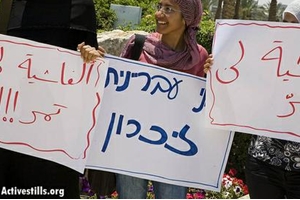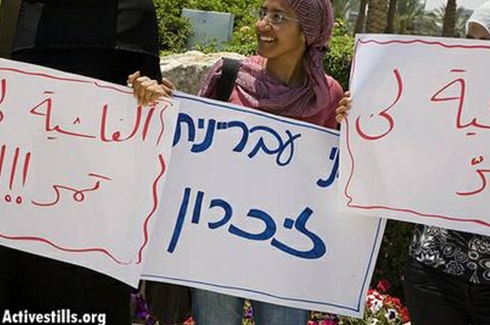
The High Court of Justice dismissed on Thursday a petition contesting the so-called “Nakba law,” which enables the state to reduce public funding for institutions that commemorate the Palestinian catastrophe of 1948. The law, passed in March of last year, originally sought to criminalize the commemoration of the Nakba. Its latest version, called “Amendment 39 to the Budget Foundations Law,” threatens to withdraw public funds from bodies considered to have acted to associate feelings of mourning with the establishment of Israel’s independence. According to the law:
“If the Minister of Finance sees that an entity has made an expenditure that, in essence, constitutes one of those specified below (in this section – an unsupported expenditure), he is entitled, with the authorization of the minister responsible for the budget item under which this entity is budgeted or supported, after hearing the entity, to reduce the sums earmarked to be transferred from the state budget to this entity under any law:
1. Rejecting the existence of the State of Israel as a Jewish and democratic state;
2. Incitement to racism, violence or terrorism;
3. Support for an armed struggle or act of terror by an enemy state or a terrorist organization against the State of Israel;
4. Commemorating Independence Day or the day of the establishment of the state as a day of mourning;
5. An act of vandalism or physical desecration that dishonors the state’s flag or symbol.”

rally against the “Nakba law” at Ben-Gurion University, June 2009 (Photo: Activestills)
A three-justice panel rejected the petition submitted jointly by the Association for Civil Rights in Israel (ACRI); Adalah, The Legal Center for the Arab Minority in Israel; five parents of children who study at “Galil,” a joint Jewish-Arab school in the Galilee; an NGO of alumni from the Arab Orthodox School in Haifa; and Prof. Oren Yiftachel, a leading researcher from the Ben-Gurion University, who argued that the law constitutes a dangerous violation of free speech. The three sitting justices refused to rule on the merits of the law’s constitutionality. Instead, they argued that the legal question is not yet “ripe” for a decision, because no institutions have yet suffered the law’s effects.
In response to the decision, ACRI said: “The court, in its decision, ignores the fact that the blow both to free speech and to the rights of Arab citizens is already taking place in practice, before the implementation of the law. Because the law’s wording is broad and vague, many bodies are likely to censor themselves so as not to place themselves at risk. The High Court missed an opportunity today to make it clear to the legislators that there’s a limit to the assault on human rights in general and on the Arab population in particular. We will continue to monitor cases of concrete harm and will consider another appeal to the legal system.”
Related:
The High Court decision here (in Hebrew only).
From the petition to the Supreme Court (in English)


